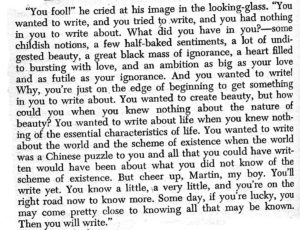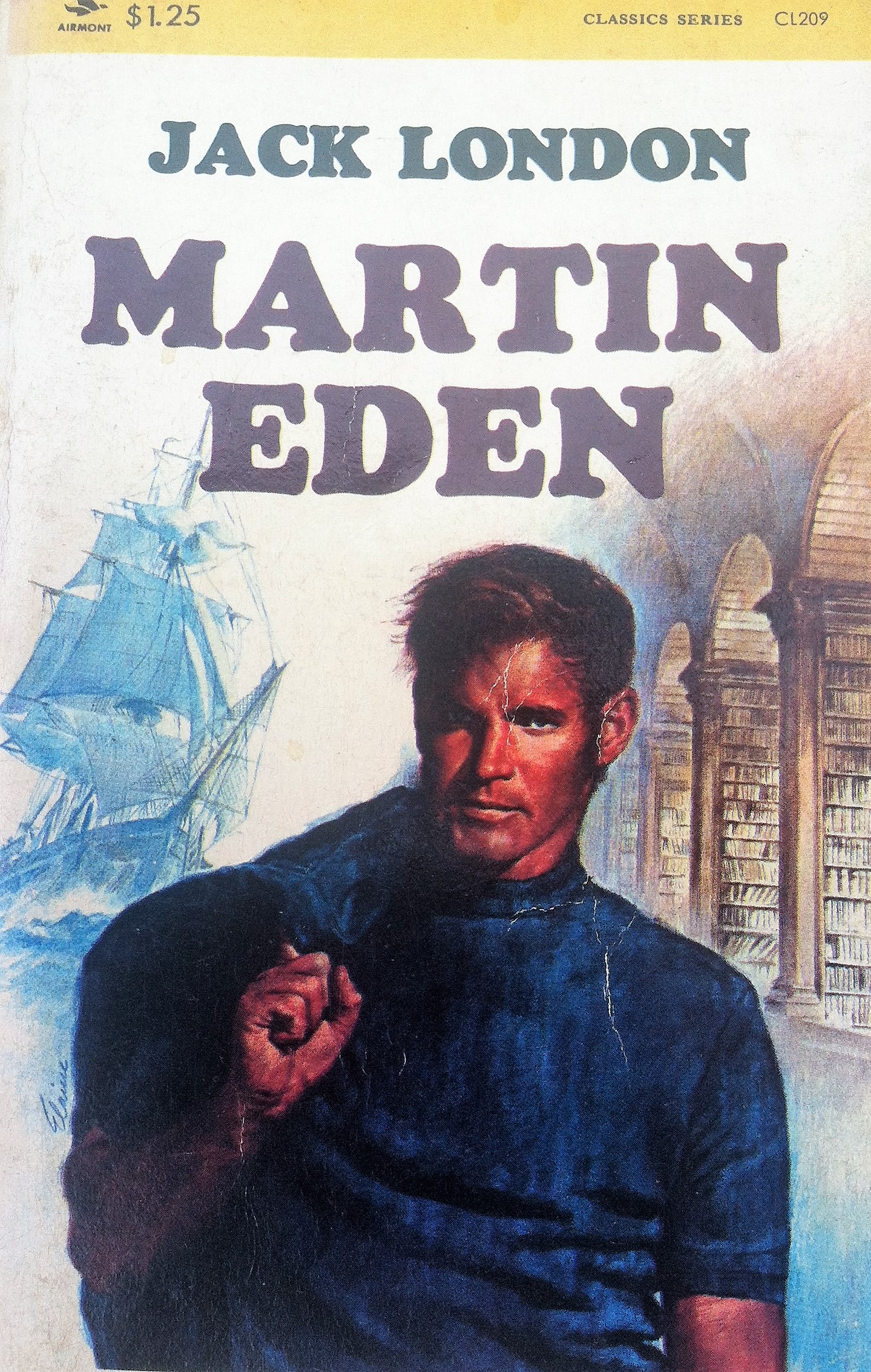A Discourse on Martin Eden
Jack London’s faintly autobiographical novel, Martin Eden, was published in 1909, some time after he had become the most famous and highly paid writer in the world. In short, it tells the story of Martin Eden, a young, destitute, restless man who wants to become a writer, travels the world, educates himself in relentless fashion, and then suffers setback after setback from the literary establishment until one day he doesn’t, and goes onto to be the most famous and highly paid writer in the world.
There’s more to the novel, a love interest, scavenging for meals and shelter, discussions of poetry and essays, heaps of socialism and hearty critiques of the bourgeois.
In my mind, Martin Eden contains the saddest ending in the history of American literature and it involves an open port hole, a ship at sea, and a last reading of Swinburne to send a writer over the edge. The writer had it all and it wasn’t enough. In fact, having it all killed him.
I read the novel in my early 20s, mid 30s and late 40s. The other day I picked up it again and started reading pages at random. The passage reproduced here caught my eye, again, because I’ve read it so many times and use it in writing workshops. Read it though carefully and particularly the statement: “Some day, if you’re lucky, you may come pretty close to knowing all that may be known. Then you will write.”
 At this point in my writing life, and I don’t know exactly where that point is, (do I even have one left?) I believe exactly the opposite of London’s statement above.
At this point in my writing life, and I don’t know exactly where that point is, (do I even have one left?) I believe exactly the opposite of London’s statement above.
Perhaps the less you know of something is the beginning of real writing. Perhaps alleged certainty on a subject renders it stiff and useless to the heart of a reader and writer. Perhaps the old dictum, “write what you know,” is to write what is safe and unchallenged. Perhaps Martin Eden needed to find something he didn’t know or claim to know and dive head first or cannonball into its ignorance and dog paddle around, take deep breaths underwater, or sit on an inner tube and float. You might learn something new that way. You will get wet. You might even drown.
Perhaps there are no rules for writing and nobody knows anything.
I am throwing out every rule for writing and publishing I have ever heard or read about (and there millions of them) as I write the book about what has happened to me, is happening to me.
It seems the only way.
I’ve already dived into my ignorance and it was deep and cold. My only hope is not to drown.
(If you found this post enjoyable, thought provoking or enlightening, please consider supporting a writer at work by making a financial contribution to this blog or by purchasing an NSP book.)

